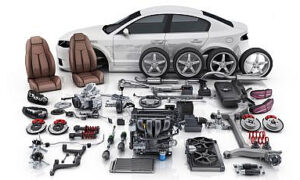When purchasing a vehicle whether new or used, one of the biggest decisions many drivers face is whether to invest in an extended warranty. For some, it feels like an unnecessary expense. For others, it’s a vital layer of protection that brings peace of mind.
Providers like Nova Warranty offer extended coverage options that help reduce unexpected repair costs and offer more predictable ownership expenses, especially as vehicles age and manufacturer warranties expire.
But what exactly is an extended car warranty, and when does it make sense to get one?
What Is an Extended Warranty?
An extended warranty, also known as a vehicle service contract, is a plan that covers the cost of certain repairs and mechanical failures after the manufacturer’s warranty has expired. While factory warranties usually last 3 to 5 years or up to a certain mileage limit, extended warranties can offer protection well beyond that timeframe.
Extended warranties are offered by various third-party providers as well as some dealerships and automakers. They differ in coverage type, duration, and cost—so it’s important to read the fine print before signing.
Why Drivers Consider Extended Coverage
The cost of vehicle repairs has steadily increased over the years. According to AAA, the average cost of owning and operating a new vehicle is now over $12,000 per year, including maintenance and unexpected repairs. Extended warranties help protect against large repair bills that can be difficult to budget for.
This type of coverage is especially appealing for:
- Owners of older vehicles with expired factory coverage
- People who plan to keep their car long-term
- Drivers of high-end vehicles with more expensive parts and labor
- Individuals who want predictable budgeting and reduced financial surprises
Key Benefits of Extended Warranties
While they aren’t for everyone, extended car warranties offer several potential benefits:
1. Cost Predictability
With an extended warranty, you can often reduce or eliminate large out-of-pocket costs for repairs. Many plans come with set deductibles, making it easier to plan your vehicle-related expenses.
2. Peace of Mind
Knowing you’re covered for unexpected mechanical breakdowns can be reassuring—especially for those who rely on their car for daily commutes or long trips.
3. Roadside Assistance and Extras
Some plans come bundled with additional services like roadside assistance, towing, rental car reimbursement, and trip interruption coverage. These perks can add real value during stressful situations.
4. Transferable Coverage
In many cases, extended warranties can be transferred to a new owner if you decide to sell the vehicle. This could increase the resale value by providing added security for the buyer.
What’s Covered (and What’s Not)
Coverage varies widely depending on the provider and the plan. Most extended warranties fall into two categories:
- Powertrain warranties, which cover major components like the engine, transmission, and drivetrain
- Bumper-to-bumper warranties, which offer more comprehensive coverage but typically exclude routine maintenance, wear-and-tear items, and cosmetic damage
It’s important to understand what’s included—and more importantly, what’s excluded—before committing to a plan.
Extended Warranties for Luxury Vehicles
Luxury vehicles like Audi are known for performance and advanced technology—but they also tend to come with higher repair costs. For that reason, many owners look into specialized coverage options, such as an Audi extended warranty, to help manage long-term ownership costs.
Plans tailored to specific brands can offer better alignment with manufacturer specs and address common repair needs associated with that make or model.
Making the Right Choice for Your Vehicle
An extended warranty isn’t necessary for every driver. Those with newer cars, lower mileage, or short-term ownership plans may find limited value in the additional coverage. However, for others—especially drivers of aging or premium vehicles—the benefits can outweigh the costs.
It’s also essential to choose a reputable provider. Companies like Nova Warranty offer multiple plan types, giving drivers the flexibility to find coverage that suits their vehicle and budget.
Final Thoughts
An extended warranty can be a smart investment under the right circumstances, especially if you’re looking to minimize repair risks and maintain predictable expenses. The key is to assess your driving habits, vehicle type, and long-term plans before deciding.
Just like any financial product, an extended auto warranty works best when it matches your specific needs—and when you clearly understand what you’re getting in return.


































